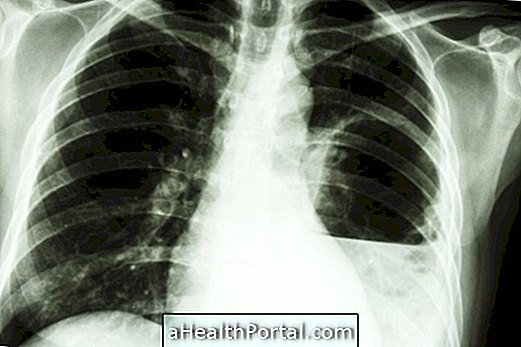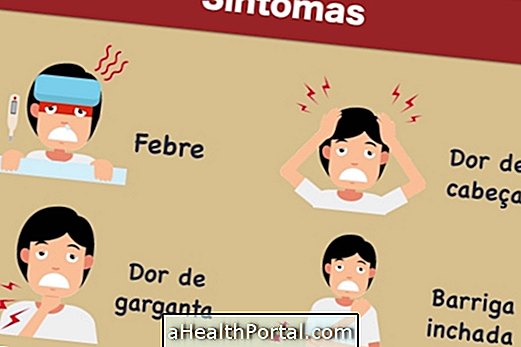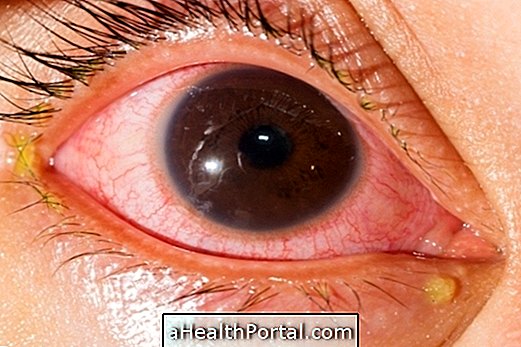Cough remedies have the effect of relieving this and other symptoms associated with the problem such as throat irritation, sputum or shortness of breath. The treatment should be indicated according to the type of cough presented by the patient and should aim to relieve symptoms and eliminate their cause. Know some common causes of cough.
Children's cough remedies should be indicated by your pediatrician according to the type of cough the child has and general health. Offering medicines without medical advice to the child can be harmful to health. See: Taking medicine without medical advice can damage the liver.

Dry cough remedies
Dry cough remedies should be recommended by a doctor who should understand the cause of the cough in order to prescribe the one that fits best. The remedies may be taken in the form of syrup, drops or tablet, and may have action on the nervous system in order to control the frequency and intensity of the symptom, throat relieving irritation, or tracheobronchial level, with an antiallergic activity and anti-bronchospastic.
Some dry and persistent cough remedies are:
- Levodropropizine, under the trade names Antux or Zyplo, for example;
- Dropropizine, under the trade names Eritos or Binelli, for example;
- Dextromethorphan, under the trade names Bisoltussin or Trimedal, for example;
- Clobutinol hydrochloride;
- Codeine.
An excellent remedy when the throat is also inflamed is Benalet in tablets, because it helps alleviate this symptom and treats the throat irritation.
Allergic Cough Remedies
The most commonly used remedies are antihistamines, which help control this symptom and alleviate allergic symptoms. Some used medicines may be:
- Loratadine, under the trade names Histadin or Clarileg, for example;
- Desloratadine, under the trade names Aerius or Desalex, for example;
- Dexchlorpheniramine maleate.
In addition to the ingestion of the drugs, it is important to avoid contact with the allergic substance that is causing this symptom, so as to eliminate it.
Cough remedies with catarrh
These remedies are intended to make sputum less viscous and to facilitate elimination by reducing airway obstruction, coughing, and shortness of breath. Coughs with catarrh can be caused by respiratory illnesses like flu, cold, asthma or bronchitis.
Some indicated mucolytic remedies are:
- Ambroxol, under the trade names Mucosolvan, Sedavan or Mucolin, for example;
- Bromexin, under the trade names Bisolvon or Bontox, for example;
- Guaifenesin, under the trade names Syrup Vick or Dimetapp, for example;
- Acetylcysteine, under the trade names Fluimucil or Flucistein, for example.
In this case, antitussive drugs should not be taken because they prevent the cough reflex, which helps release the accumulated sputum in the airways, aggravating the person's health.
Homeopathic Cough Remedies
These are indicated for treating dry or productive cough, promoting relief of throat irritation, decreased viscosity of secretions and facilitating sputum. Homeopathic remedies should be indicated by the physician after evaluation of the symptoms presented by the patients.
An excellent homeopathic remedy for cough is Stodal, produced by Boiron laboratory.
Natural Cough Remedies
A good natural cough remedy is the date, as it helps to break down the phlegm, softens the irritation of the bronchi and fights fatigue and weakness. Other natural treatments are to ingest fluids regularly to soothe the throat, to inhale water vapor, to suck mint or honey mints.
Another great way to naturally treat cough is to take advantage of the aromas of medicinal plants such as eucalyptus, cherry and peppermint. Here's how to use aromatherapy to combat coughs.
Learn how to prepare syrups, teas and cough juices in the following video:
























